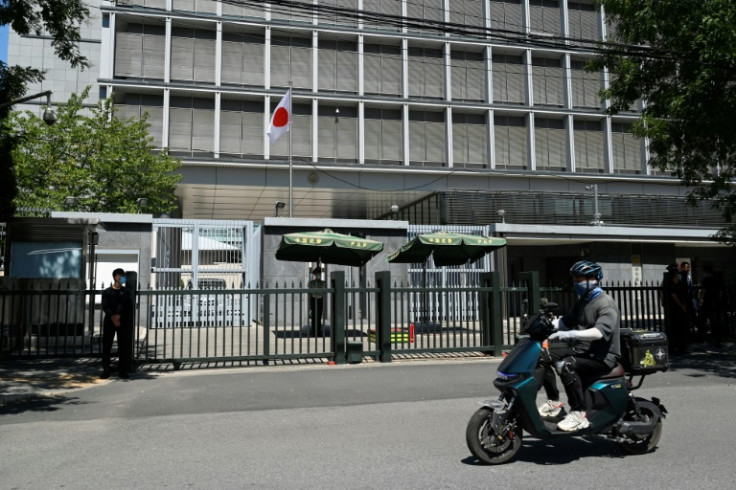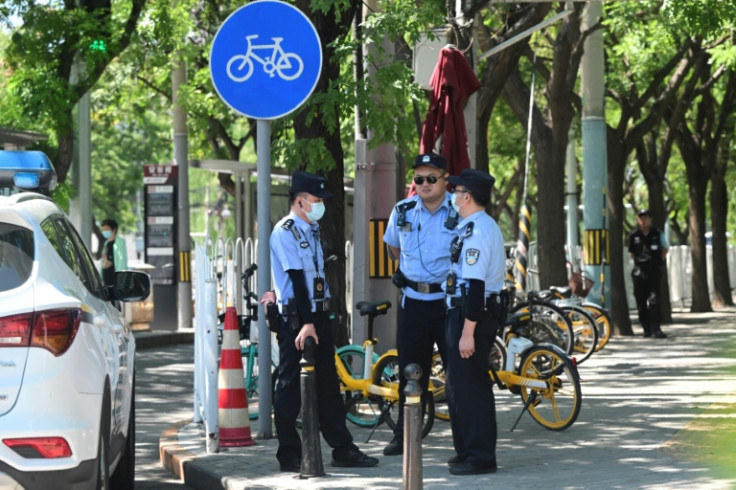Fukushima spat: Bricks thrown at Japan Embassy in China
Japan has said that the harassment of Japanese citizens in China following the release water from Fukushima’s nuclear plant is “extremely regrettetable”. It also confirmed that a brick had been thrown at its embassy in Beijing.
China last week banned all seafood imports coming from its neighbor, while Japan began to release treated wastewater from a crippled nuclear plant. Both Tokyo and the United Nations’ nuclear watchdog said the operation was safe.
Since then Japan has warned its citizens in China not to be seen and has increased the security around schools, diplomatic missions and other sensitive areas.
Japan’s Foreign Minister confirmed on Tuesday media reports that a stone was thrown against its embassy in Beijing. He also echoed the calls made by Prime Minister Fumio Kishhida to China on Monday, to calm down the situation.
Yoshimasa Haiashi, who spoke to reporters in Tokyo, said that the situation was “extremely regrettable” and “worrying”.
“We urge the Chinese government to immediately take the appropriate measures. For example, we ask its citizens to remain calm to prevent an escalation of the situation. And, to take any measures necessary to ensure safety for Japanese residents in China and our diplomatic missions there,” he added.
He also said that China “should provide accurate information” on the Fukushima-related water leak “rather than unnecessarily causing people to be concerned by providing inaccurate information”.
A spokesperson for the Japanese embassy in Beijing told AFP staff at that embassy were “extremely concerned”.
“Some individuals are at our (embassy’s) entrance,” said the spokesperson.
They took such actions and were then led away by armed officers.
Wang Wenbin, a spokesman for the Foreign Ministry, said that China would “always protect the safety and the legitimate rights and interest of foreigners living in China according to law”.
Wang, speaking at a regular briefing, said: “We urge the Japanese side, in response to legitimate concerns from all parties, to immediately stop the release of nuclear contaminated water into sea water, to consult fully with neighbours and stakeholders, and to dispose of nuclear contaminated water responsibly.”
Japan’s Foreign Ministry urged its citizens to be “cautious” in their speech and behavior in China. Do not speak Japanese too loudly or unnecessarily.
According to reports, a range of Japanese businesses, including bakeries and aquariums, have been the target of thousands of threatening calls, which included racist and abusive language.
Users of social media in China posted videos and recordings of the calls. Some have received tens of thousand likes.
On Thursday, Japan released into the Pacific more than 500 Olympic-sized swimming pools of diluted Fukushima wastewater. This comes 12 years after the tsunami that destroyed three reactors was one of the worst nuclear accidents in history.
TEPCO, who operates the plant, claims that all radioactive materials have been removed except for tritium. The levels of tritium are well within safe limits, and lower than those released in normal nuclear power station operation — even in China.
According to Japanese authorities, the results of tests on seawater and fish near the plant have confirmed that this has been the case since the beginning of the discharge – which will take many decades to complete.

AFP

AFP

AFP